A successful implant procedure hinges on dental implant burs, tiny mechanical tools employed to modify the bone prior to the implant installation. Without these small, rotary instruments, a permanent resolution for missing teeth would be impossible, making them just as important as the implant itself.
Selecting the appropriate dental implant burs is essential for completing procedures effectively. This article will explain the significance of these tools, the range of choices, and the criteria to evaluate while picking the best option for any given job.
All of the nooks and crannies of the dental bone need to be precisely prepped to make room for the implant, and stainless steel dental implant burs are a crucial part of that process. Coming in a range of sizes and shapes, these tools carve away at the bone to form a well-defined space for the implant to settle into comfortably. With them, surgeons can rearrange the dental landscape to its ideal dimensions, setting up an ideal stage for successful surgery.
Before being inserted, a bur is utilized to refine any rough edges of the dental implant that may interfere with the precise alignment. Ensuring proper alignment of the implant is paramount as it helps keeps it properly secure and avoids any shifts post-insertion. Undoubtedly, this step is essential to guaranteeing that the implant fits snugly and is stable afterward.
For dental implant procedures, there are a variety of burs available, including diamond, carbide, and titanium. Prior to selecting one, it is recommended to take into consideration the positives and negatives of each type in order to make the most suitable decision for the job at hand.
When performing a dental implant procedure, diamond burs are the go-to choice. These highly precise cutting implements are famed for their razor-sharp edges and extended shelf life, making them an ideal tool for such meticulous work. Despite costing more than some of their counterparts, diamond burs effortlessly create the necessary cavity in the bone, earning them their coveted status in the dentistry world.
Cost-effective carbide burs are popular for rounding out the edges of a dental cavity after it has been formed. Although they are cheaper than diamond burs, they tend to be less precise and tend to wear down quickly. For folks looking for a more affordable option, titanium burs offer excellent strength and are great at honing in the unfinished edges of dental cavities.
A careful selection of bur for dental implant procedures is essential: depending on the size of the implant and type of material, there are efficient shapes and sizes that should be taken into account for best results. Patient’s oral health should also be attributed appropriate consideration when making the pick.
As the proficiency of the dental practitioner is a deciding factor, it is critical to pick a bur correctly. Based on the technical expertise of the dentist, there are varying bur types requiring distinct levels of proficiency for their usage. Consequently, choose a bur that caters suitably to the dentist’s skillset.
When it is time to insert a dental implant, burs play a crucial role. Tailored to the size and shape of the implant, as well as the material used, the bur carefully creates a cavity in the bone and shapes the edges for successful placement. Ultimately, it is these factors – along with the oral health of the patient and the expertise of the dentist – that will decide the success of the treatment, and satisfaction for all involved.
A dental implant is an artificial tooth root that serves as a replacement for a damaged or missing tooth. Created through modern dentistry, these implants are made in the form of a small, metal post which is surgically placed into the jawbone. It works like a natural root, providing support for dental crowns, bridges, and dentures. In order to effectively insert the implant, the bone must be pre-drilled – a job which is entrusted to dental implant burs.
With the help of a dental hand-held tool, a small, diamond-tipped rotary bur creates an exacting hole in the jawbone that is essential for implant placement. The bur is connected to the handpiece – a motorized device that regulates its speed and direction – and driven into the jawbone at various inclines to achieve the desired depth.
The bur employed during implantation will vary depending on the kind and size of the implant being used. If the implant is small, a correspondingly small bur may be sufficient; conversely, if the implant is large, then a larger bur will be necessary. Further, the shape of the bur can be altered to form a custom-fitted opening for the implant, one that allows it to fit perfectly and snugly in the jawbone.
It is critical to choose the correct bur for any dental implant. There are numerous types to select from, such as tungsten carbide, diamond, and high-speed steel. Although each has its own pro’s and con’s, finding the variant best suited to the job at hand is essential.
When it comes to bur shapes, there is no one-size-fits-all solution. Depending on the desired shape and size of the hole, a round or tapered bur might be used. Moreover, the shape of the bur can determine how precise the implant placement is. Therefore, selecting the right bur is essential for an excellent implantation result.
The dimensions of the bur also need to be taken into consideration. If the implant is meant to be embedded within deep pockets of the jawbone, then a longer bur is a must. Conversely, a shorter bur works better for implants that are meant to be inserted into areas of lesser depth. Ultimately, the length of the bur should reflect the size and fit of the implant.
Ultimately, the abrasiveness of the bur is a key element. The coarseness of the bur directly affects the quality of the end product – a bur with a high grade of abrasiveness will produce a smoother hole, while one with a low grade will render a more rough one. It is essential to accurately select the grit of the bur according to what implant is being put in place.
For successful implant dentistry, dental implant burs are necessary components. With the right selection of type, shape, length, and grain size, these burs accurately sculpt the jawbone and etch out a place for secure implant placement. Thus, taking the necessary time to contemplate these components guarantees the implant will be successfully and properly secured.
Related Product
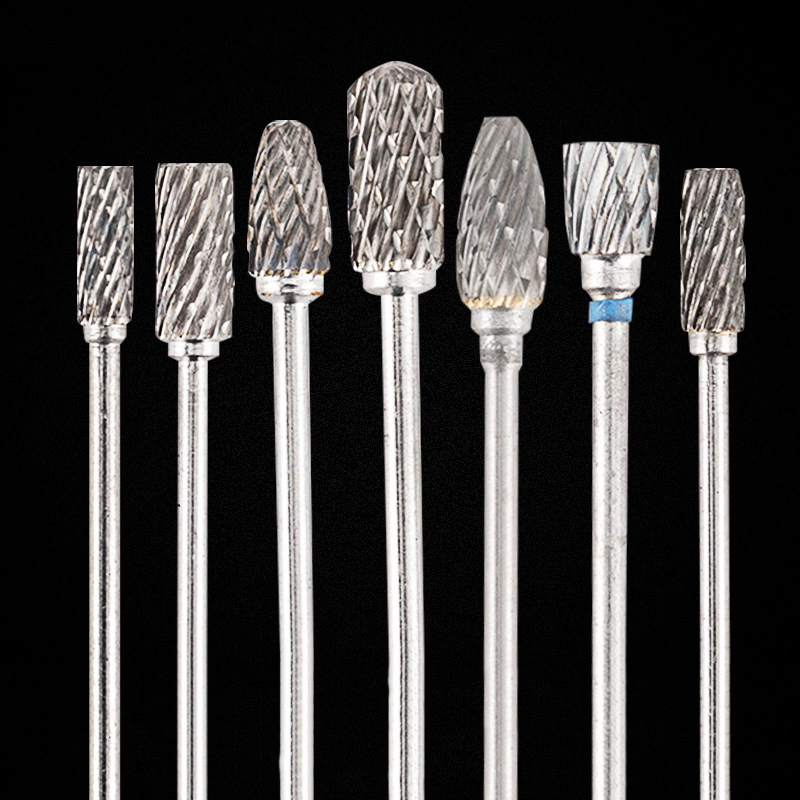
HP Deburring Carbide Burs
Product Information Brand MSK Material Tungsten Steel Model Grinding Head Custom Processing Yes Feature: The dental grinding head is made of tungsten steel with stabl […]
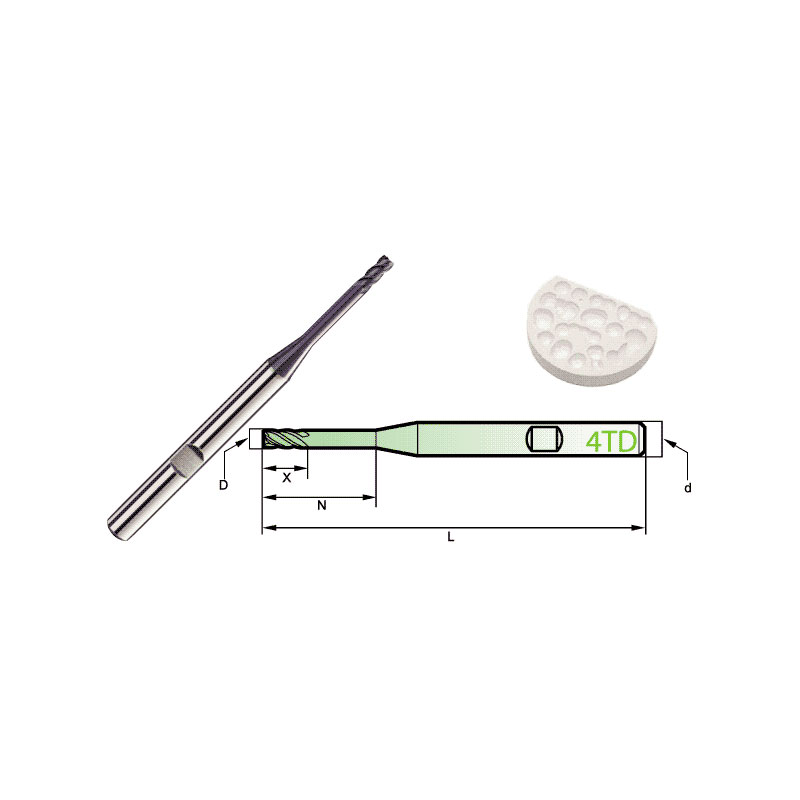
Carbide Roland CAD/CAM Burs
Product Information Origin Tianjing, China Brand MSK Number Of Blades 4 Product Name Dental Special 4-Blade End Mill Model D Number Of Blades Z X N L d 4TD2060HB 2 4 […]
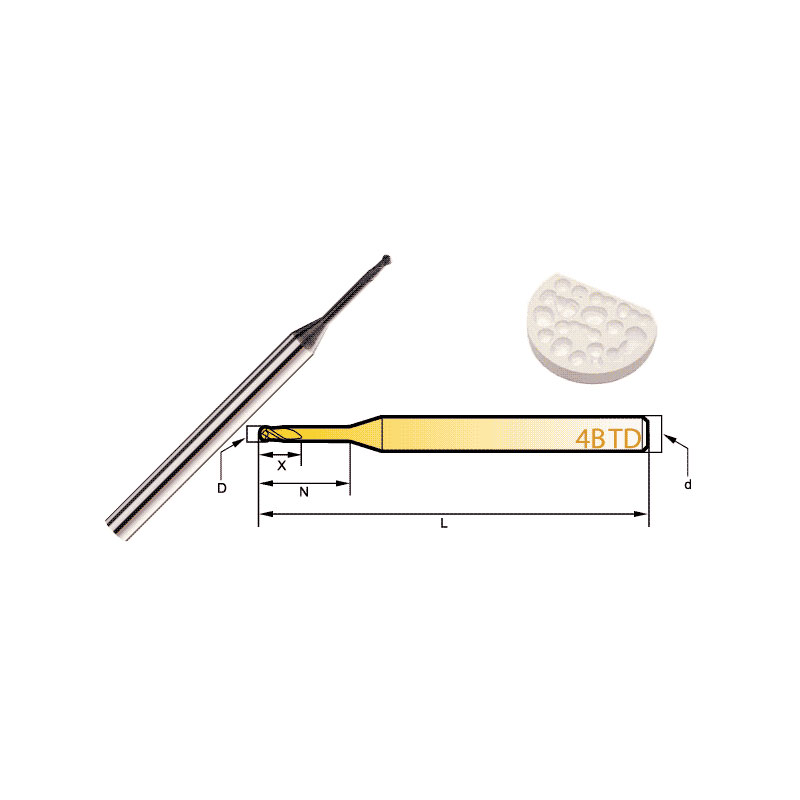
Diamond Bur Ball Round
Product Information Product Name Dental 4-Flute Ball End Mill Brand MSK Model D Number Of BladesZ X N L d 4BTD2060 2 4 6 6 50 3 4BTD2010 2 4 6 10 50 3 4BTD2016 2 4 6 […]
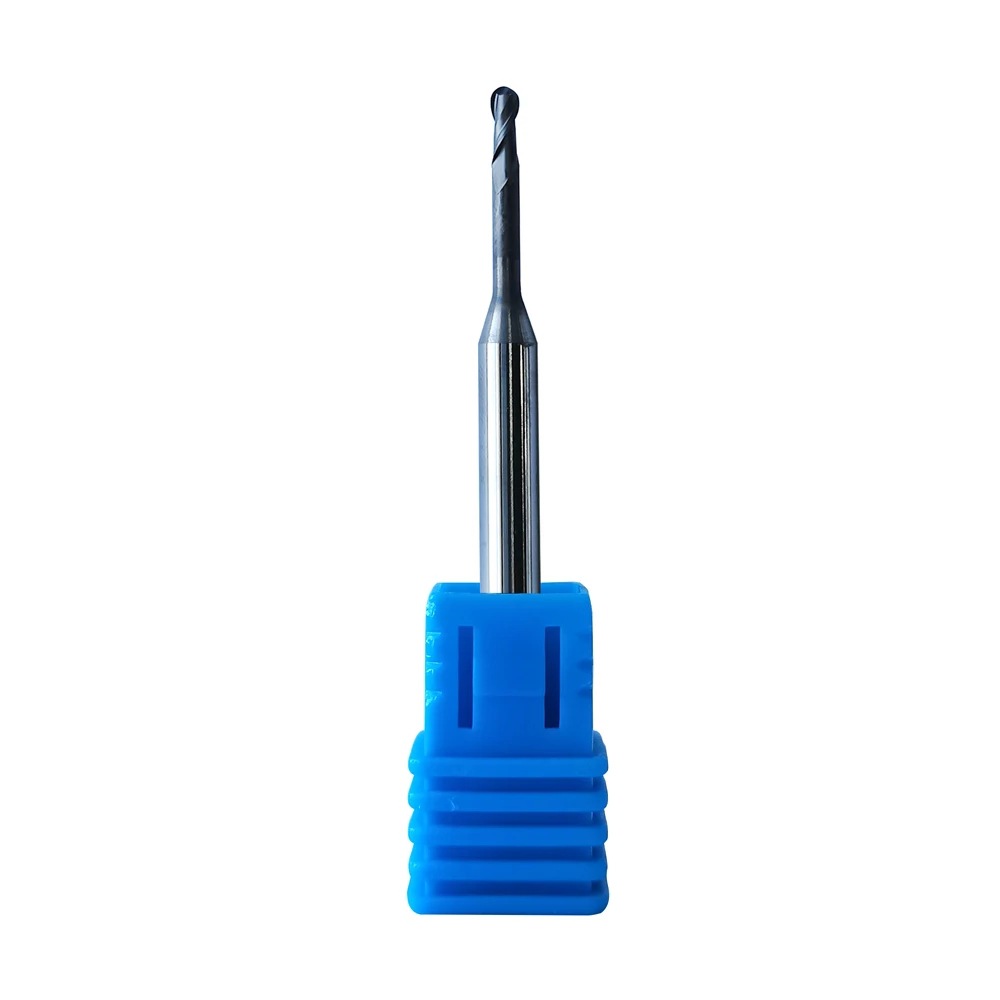
Supply Roland DLC Zirconia Burs
Product Information Origin Tianjing, China Series Dental Bur Brand MSK Cutting Edge Form 2 Blade/3 Blade Ball Diameter (Mm) 0.6, 1, 2 Material Very Fine Grained Cemented Car […]
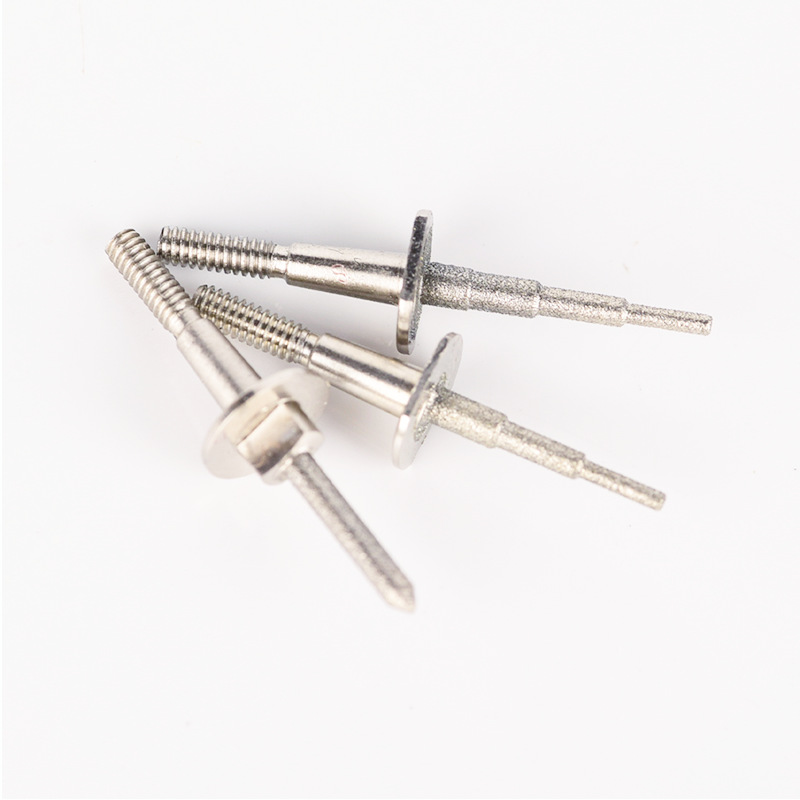
Step Bur Milling Bur Grinder for Glass Cerami
Product Information Origin Tianjing, China Shank Diameter 1.8 (mm) Brand MSK Scope Of Application CEREC3 Grinding Equipment Material Stainless Steel/Carbide Main Sales Areas […]
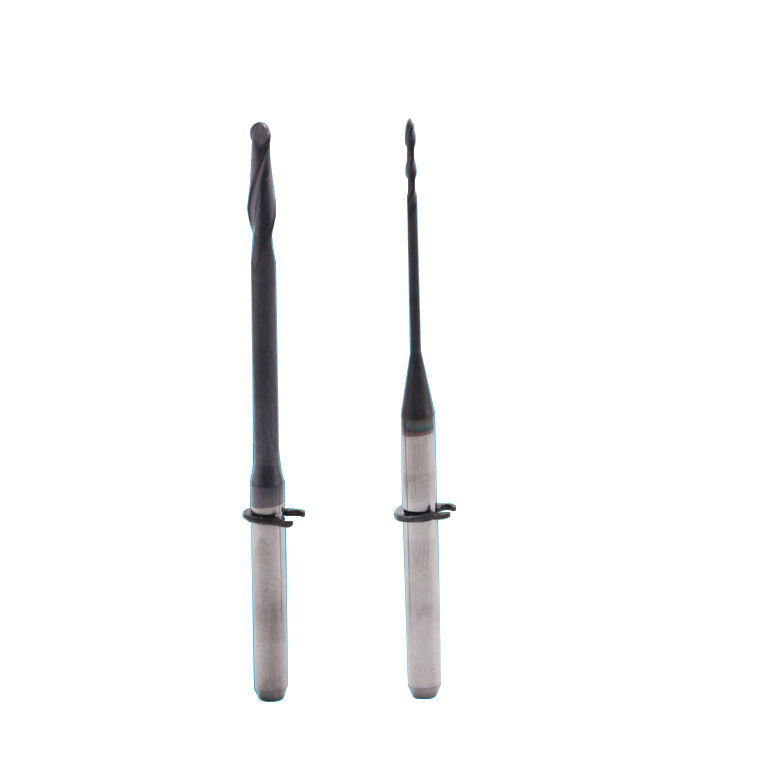
Dental CAD/CAM Milling Burs
Product Information Origin Tianjing, China Material Stainless Steel Brand MSK Applicable Machine Tools A Variety Of Options Custom Processing Yes Whether To Coat No Is It a […]
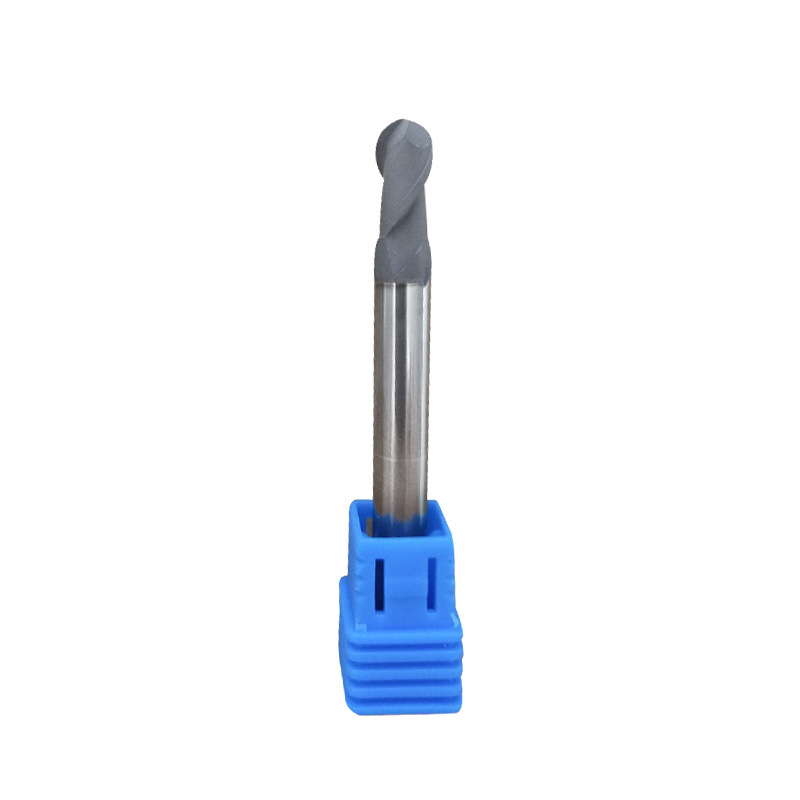
Diamond Coating Round Diamond Cutters
Product Information Origin Tianjing, China Series U Series Brand MSK Cutting Edge Form Helical Structure Ball Diameter (Mm) 3 Material Carbide Minimum Cutting Diameter At Th […]
Post time: 2023-07-25
